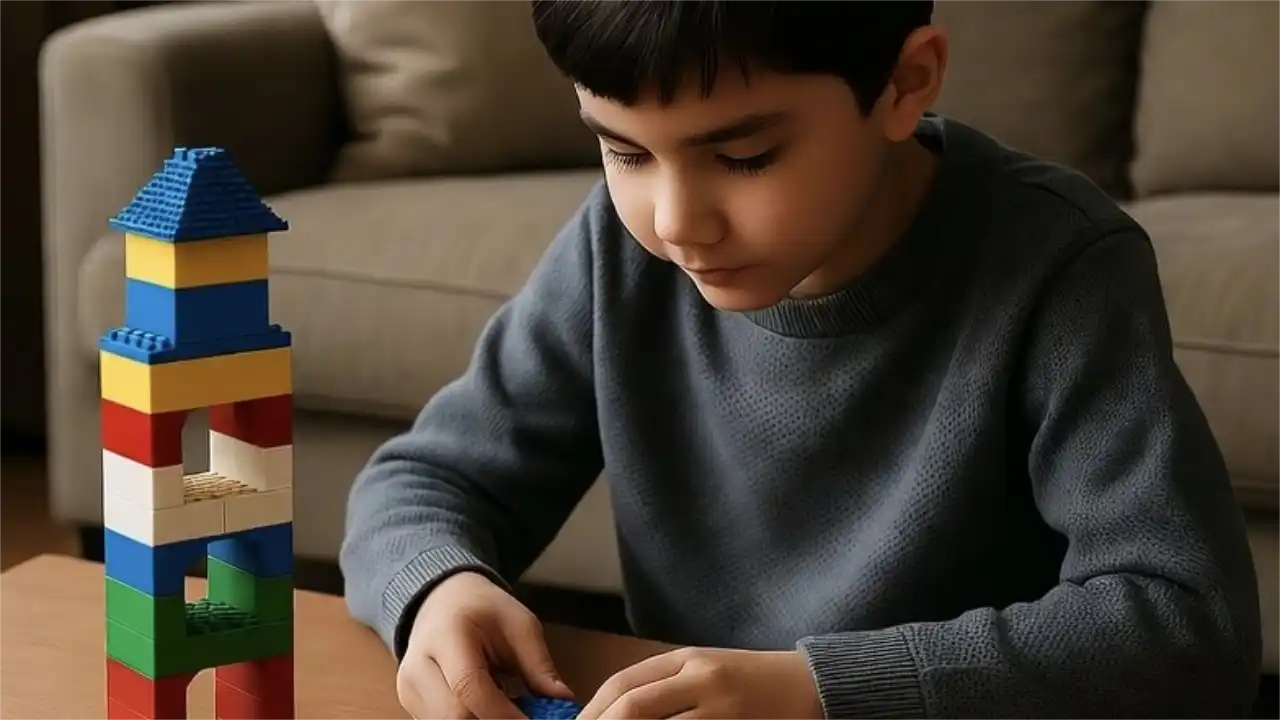
Modeling Creative Behavior: Push Through Creative Challenges
O
ne rainy afternoon, my son struggled with a LEGO tower that kept collapsing. Frustration showed on his face, and he nearly gave up. I sat beside him and asked, “What if we start with a stronger base?” He gave it a try. Slowly, the structure began to hold. That success wasn’t just about bricks—it was a lesson in resilience. When children learn to pause, rework, and try again, they start to see setbacks not as failure, but as part of the creative path.
The next day, he faced a new challenge: a paper airplane that wouldn’t glide. This time, instead of giving up, he adjusted the wings and tested again. “It’s not right yet,” he said, “but I’m figuring it out.” That shift—from quitting to tweaking—came from the many small moments we’d worked through together. As he carried this mindset into writing assignments and team projects, it became clear: learning to persist wasn’t just helping him create, it was helping him grow.
Creative work is rarely smooth. Whether it’s a crooked sketch or a recipe gone wrong, children benefit when they’re shown how to reflect, revise, and keep going. Ask, “What could we try next?” and let them explore the fix. Share stories of inventors who stumbled before succeeding. These moments reframe struggle as progress. Over time, your child will approach challenges with curiosity rather than fear, developing the inner grit to keep building—whatever the obstacle.
Modeling Creative Behavior
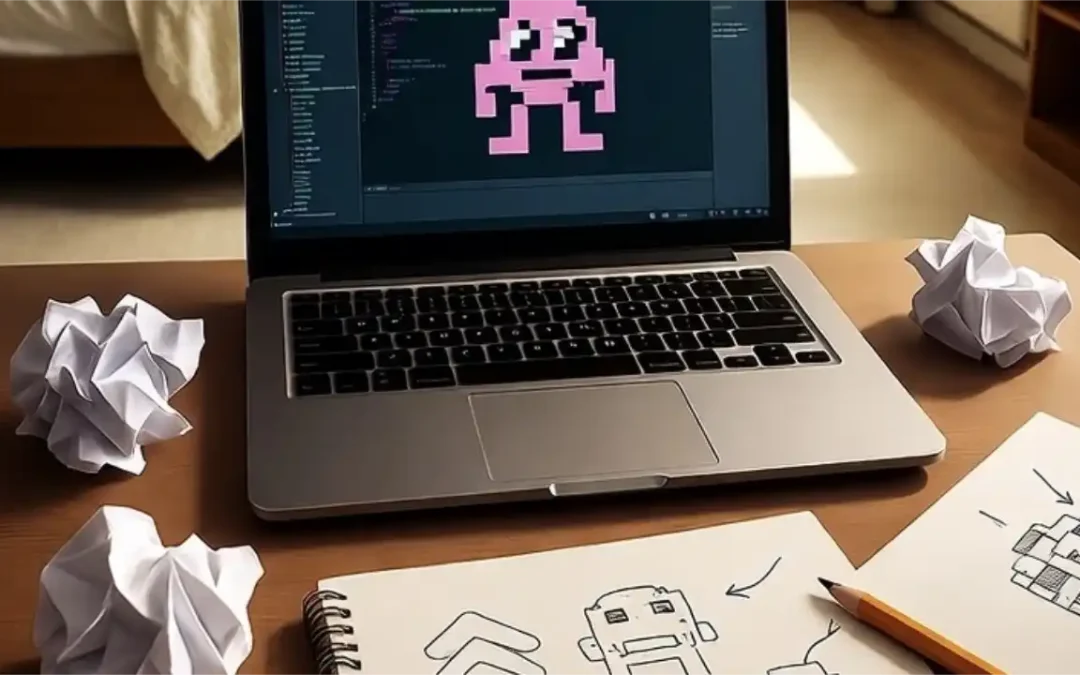
Modeling Creative Behavior: Solve Problems with Passion
Children learn deeply when they care about what they’re doing. Help them approach challenges with curiosity, enthusiasm, and emotional investment.
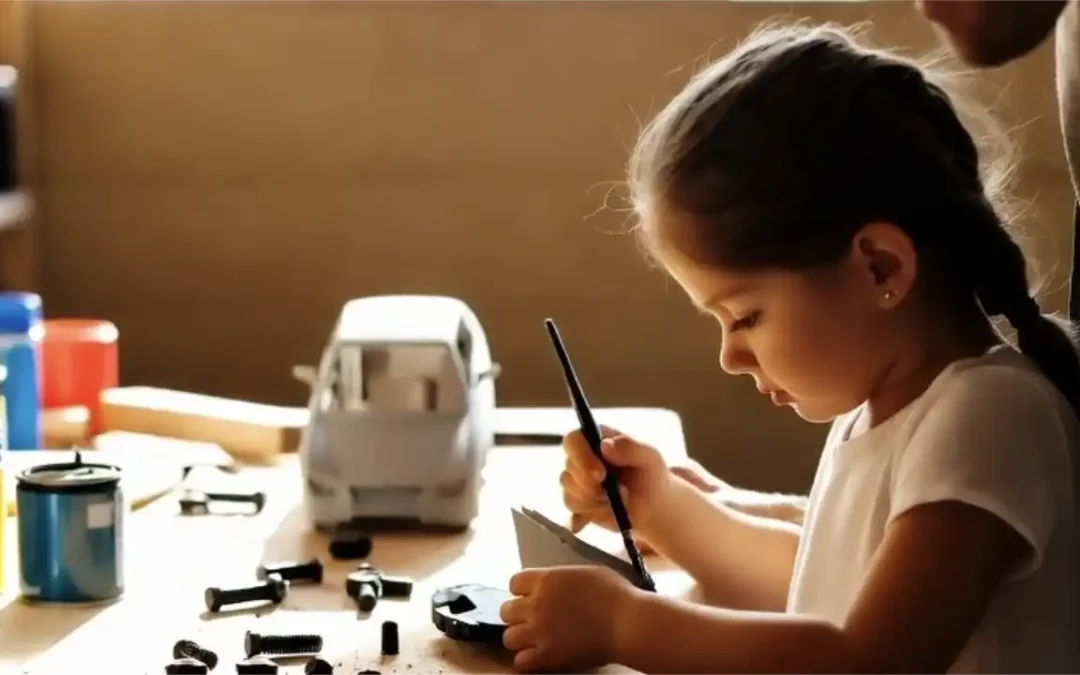
Modeling Creative Behavior: Share Your Creative Hobbies
Children learn from what we love. Share your own creative passions to inspire confidence, curiosity, and joyful learning at home.
Table of contents

Primordial Soup for the Mind: Navigation
Navigate the book Primordial Soup for the Mind.
TIPS
- Show effort in tasks like fixing or puzzles.
- Praise their tries to show you value their work.
- Share challenges weekly.
- Ask “Should we keep going?” to start ideas.
ACTIVITIES
- Fix Task: Work on a repair, ask, “Should we keep going?” Try for 15 minutes.
- Puzzle Time: Solve a puzzle, talk about their effort, 20 minutes.
EXAMPLE
My daughter helped me repair a chair, saying, “It’s fixed!” Her effort started a repair hobby.

Download “Primordial Soup for the Mind: A Parent’s Guide to Nurturing Intellectual Growth”
Enter your information to get this article and hundreds more as part of the FREE book Primordial Soup for the Mind.
Share your thoughts with the Thought Academy community in the Comments section below.

Sharpen those skills!
Enter your information to get our FREE practice exercises so you can hone your critical thinking and reasoning skills!



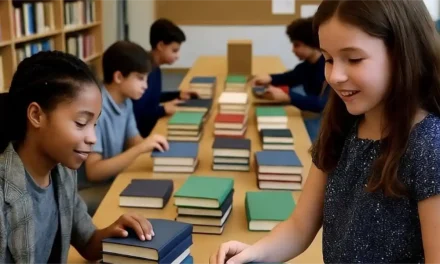


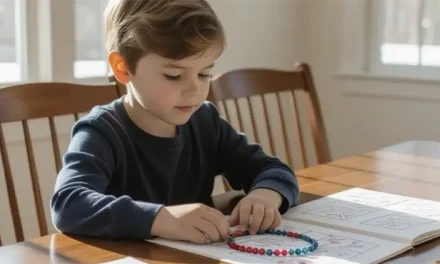
0 Comments